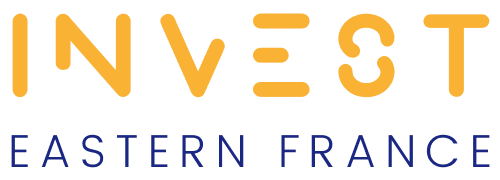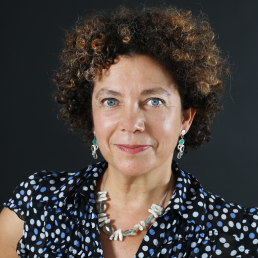
Medi-Globe Technologies and IHU Strasbourg launch iGlobe Scientific, a joint venture for early detection of pancreatic cancer
After several years of fruitful collaboration in the field of Artificial Intelligence applied to the early diagnosis of pancreatic cancers by echo-endoscopy, the IHU Strasbourg and the German company Medi-Globe Technologies GmbH announce the creation of their Joint-Venture “iGlobe Scientific”, dedicated to the transfer of the results of their research activities in this field.
Exceptional funding from the ARC Foundation behind the project
In January 2021, IHU Strasbourg began studying computer-assisted examination of the pancreas using echo-endoscopy. This new activity was made possible thanks to exceptional funding totalling almost €772,000 from the Fondation ARC for Cancer Research. The aim of this research activity was to explore innovative methods for the early diagnosis of pancreatic cancer, a prerequisite for increasing the chances of survival for patients suffering from this pathology. Every year, there are over 14,000 new pancreatic cancers in France (the sixth most common cancer), and almost 11,500 deaths. Diagnosis is generally made at an advanced stage, which explains the poor prognosis of the disease. The number of new cases of pancreatic cancer has been rising steadily for several years, in France as in the rest of Europe. Surgery is the only potentially curative treatment for pancreatic cancer, but it can only be considered when the disease has been diagnosed at an early stage of development.
The genesis of technology transfer
In the APEUS-IA research project, researchers and clinicians at IHU Strasbourg worked closely together to develop an Artificial Intelligence (AI) capable of identifying lesions in echo-endoscopy videos obtained during pancreas examination. The final objective was to establish proof of concept of the solution’s ability to assist clinicians in their practice, and to prepare for the transfer of research results.
In the course of these developments, discussions were initiated in July 2021 with the German company Medi-Globe Technologies GmbH to explore the potential of developing a medical device to assist clinicians.
These discussions culminated in April 2022 in the signing of an R&D collaboration agreement, following the successful real-life demonstration of an initial working research prototype.
An agile and responsive organization
It was against this backdrop that the two structures decided to create the iGlobe Scientific joint venture, specializing in the development of innovative AI-based medical devices. This agile and responsive organization works closely with the IHU teams (for clinical expertise, multicenter data collection and annotation, AI) and with Medi-Globe (for quality assurance, regulatory and marketing aspects).
iGlobe Scientific currently employs 3 software and AI development engineers. The structure is set to grow as the company diversifies its activities and takes on future projects with the Medi-Globe group and other players in the digital health sector.
Commenting on the launch, Prof. Christian Debry, General Director of the IHU Strasbourg, said: “The establishment of iGlobe Scientific within the IHU Strasbourg will enable perfect interaction with its research, innovation and clinical teams. Against the backdrop of the attractiveness of the Nextmed medical technology campus and the entire Strasbourg innovation support environment.
Le Dr. Markus Schönberger, Directeur du Business Development de Medi-Globe ajoute : « We (Medi-Globe) made a very conscious decision to cooperate in the field of artificial intelligence in endoscopy with the IHU Strasbourg and to form the joint venture iGlobe Scientific. We decided this new company to be located in Strasbourg because of the local excellent clinical and academic infrastructure, as well as the uniqueness of IHU Strasbourg, a politically well-supported platform, especially from Grand Est region and Strasbourg Eurometropole, and French State. Also, the location in Eastern France is ideal thanks to the strong promotion of artificial intelligence in between academics and industry (with ENACT initiative for instance), especially for healthcare. This combination offers the perfect conditions for iGlobe Scientific regarding the highly innovative and creative employees that we can recruit from the local creative pool. »
François Dupré, Managing Director of the Fondation ARC pour la recherche sur le cancer continues: “The funding of the APEUS-AI project by the ARC Foundation from 2021 as part of its partnership with the IHU Strasbourg demonstrates its commitment to supporting cutting-edge research for the benefit of patients. Pancreatic cancer research is a strategic focus for the ARC Foundation. Improving patient care through the development of tools for the early diagnosis of pancreatic cancer is fully in line with this strategy, and is essential in the fight against this dreaded disease.”
Nicolas Carboni, Managing Director of Grand E-Nov+ concludes: “This project is fully in line with the regional strategy to encourage the creation of new innovative healthcare companies in the region. This joint venture will showcase the excellence of our region’s research, involving key players such as the IHU Strasbourg. This partnership reflects the importance of Germany as a local economic partner. I’m delighted that iGlobe Scientific has placed its trust in Grand E-Nov+, the regional agency for transformations, in close collaboration with ADIRA, the Alsace Development Agency, to support their launch.”
Benefits for patients
Echo-endoscopy (or EUS for Endoscopic UltraSound) is the only imaging technique that can enable early detection of pancreatic cancer lesions, a prerequisite for treatment that will maximize the chances of cure for patients suffering from this rare but often fatal disease if diagnosed too late. To date, however, echo-endoscopy remains an imaging technique that is both demanding to perform and complex to analyze.
iGlobe Scientific aims to develop an AI-based digital assistant offering the world’s gastroenterologists the opportunity to benefit from real-time assistance during an echo-endoscopy examination of patients potentially affected by pancreatic pathologies, including pancreatic cancer.
Such a system, combining human and artificial intelligence, will be an invaluable aid in performing quality examinations with a positive impact on the outcome of the patient’s pancreatic assessment. This concerns the identification of cancerous lesions at an earlier stage, and the detection of abnormal pancreatic glands at risk of developing cancer.
News that might interest you

British start-up Wollette has established its EU headquarters in Strasbourg
Posted on 12 November 2024

MARS plant in Haguenau invests €47 million in expansion
Posted on 16 October 2024

Lonza inaugurates its innovation center in Colmar (Eastern France)
Posted on 30 September 2024

